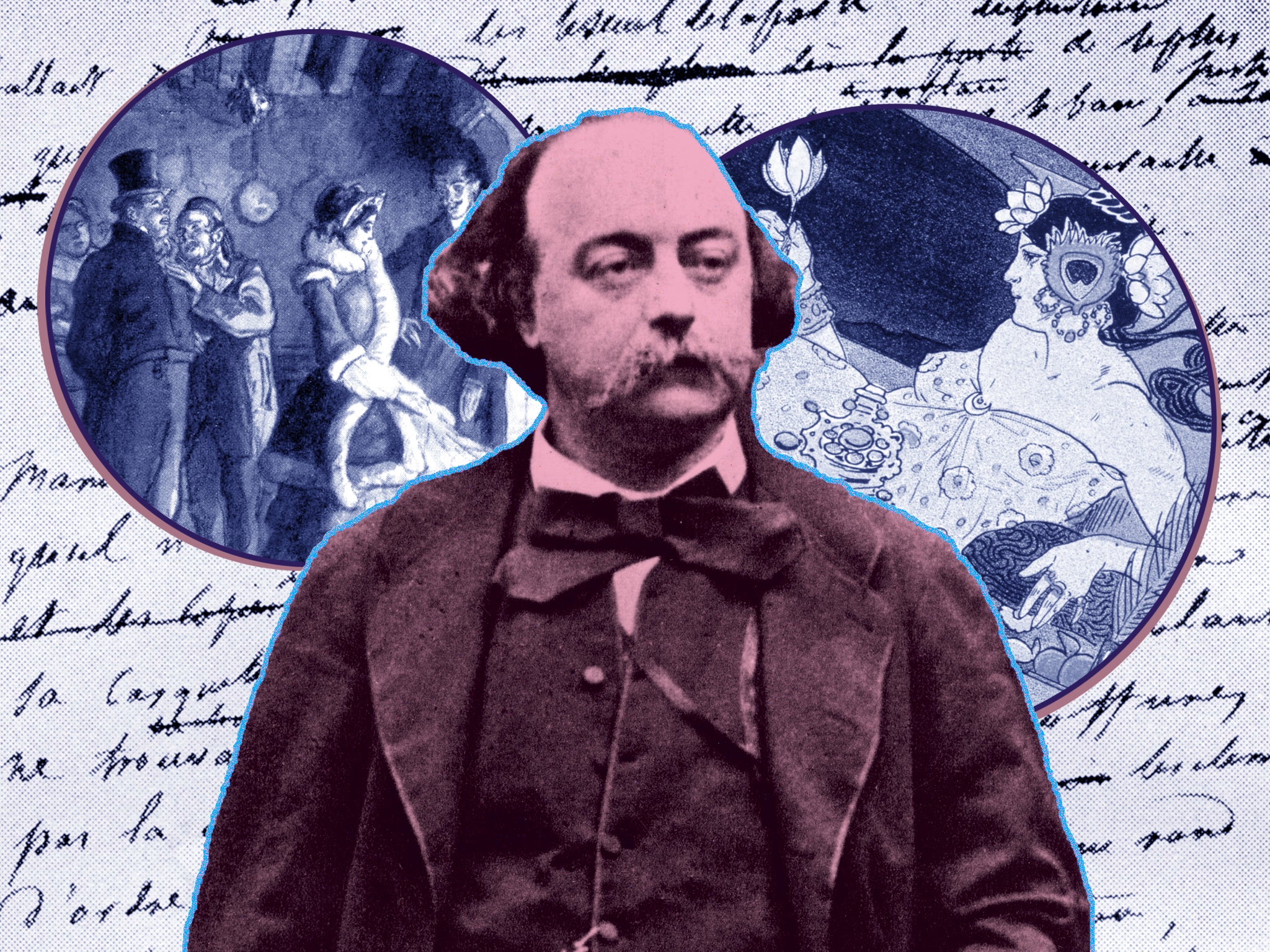‘Literature! That old tart!’ How Flaubert became the father of the modern novel
There is the time before Flaubert and the time after him. Using style over subject and incorporating realism and symbolism, he changed prose writing for ever. Kevin Childs on the genius behind Madame Bovary

The wind is warm as it rustles the great bank of yellow reeds on the riverside. They susurrate, whispering to each other, nodding and weaving their delicate heads together like lovers. The breeze brings with it the dark scent of black earth, rotting vegetation, sharp-smelling manure and, above this, as if from some distant place, a clean dry smell of sand. The desert lies just beyond a band of brilliant green that bounds each side of the river, dry stony mountains and endless sand dunes the only threat of a world beyond this narrow paradise.
A felucca, its great white intersecting sails bloated with wind, glides gently through the blue water, heeling, its keel cutting the river in two. The captain sits cross-legged in the bow. Under a canvas awning its two passengers, Frenchmen – all sunburned and turned native in wide Turkish trousers and long white cotton chemises, cotton bands wrapped about their shaved heads, puffing on shishas – are taking it all in.
Gustave Flaubert and Maxime du Camp think very highly of themselves, like most young men. They’re on an adventure of a life time: a long, long trip up the River Nile to the borders of Upper Egypt, taking photographs of the monuments they see, writing notes and detailed, beautiful letters back home, watching, eyes beady in the firelight, lithe young men dance to the music of flutes and drums, and, whenever the opportunity allows, passing under the low painted wooden door frames of brothels, within, the women in loose, colourful gowns, their flashing eyes elongated with antimony and everywhere the sharp scent of sandalwood.
Subscribe to Independent Premium to bookmark this article
Want to bookmark your favourite articles and stories to read or reference later? Start your Independent Premium subscription today.
Join our commenting forum
Join thought-provoking conversations, follow other Independent readers and see their replies